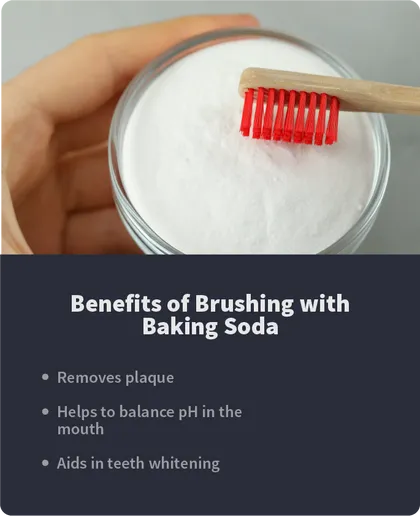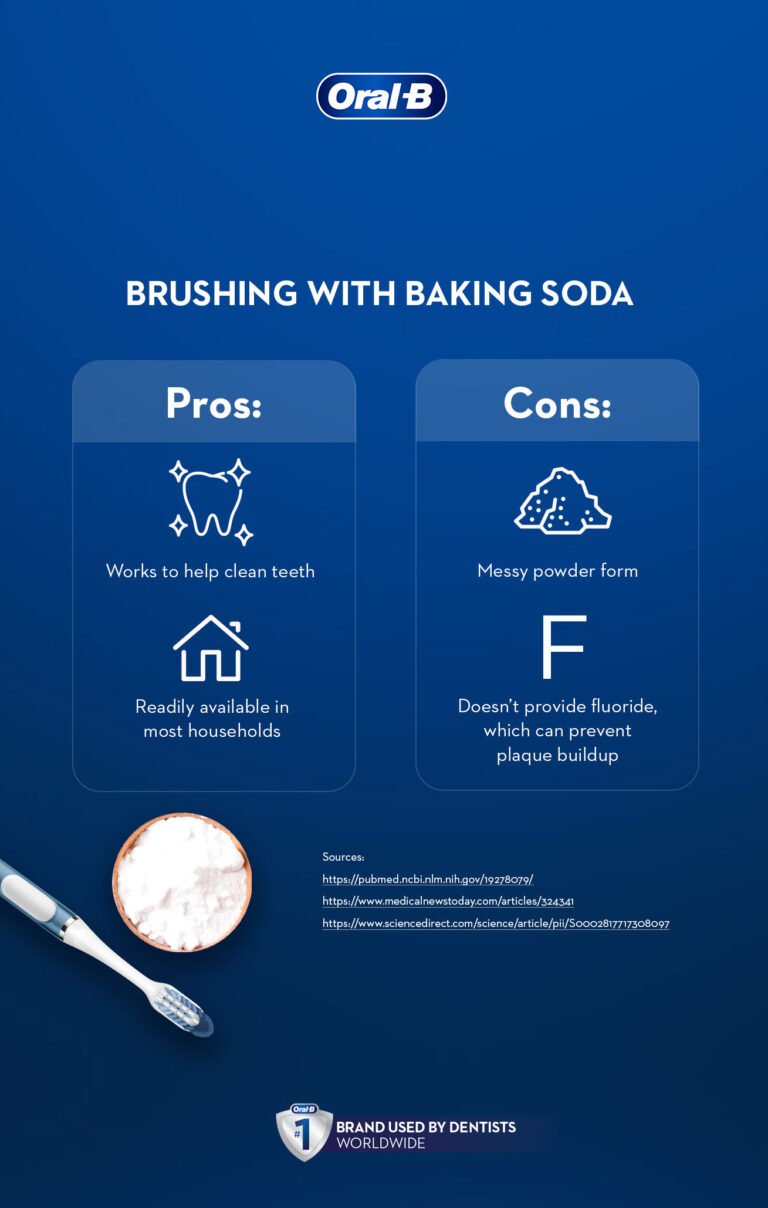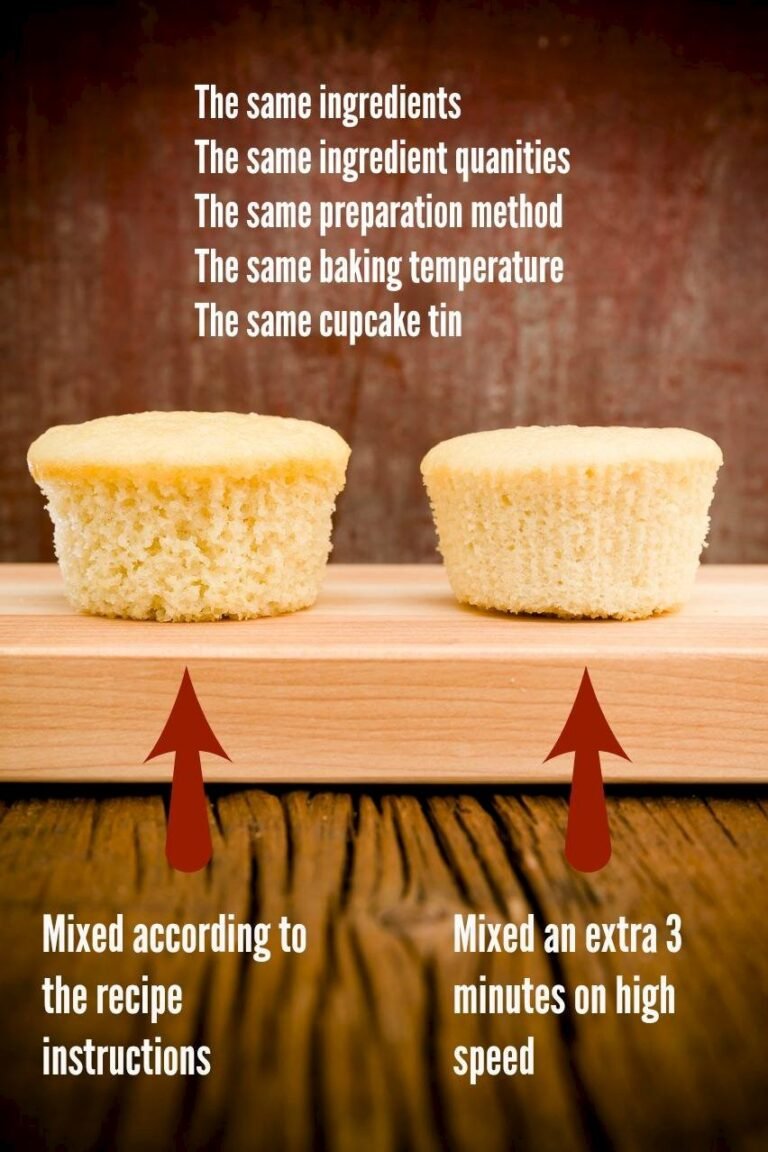Pros And Cons of Using Baking Soda to Whiten Teeth: A Detailed Guide
**Pros and Cons of Using Baking Soda to Whiten Teeth** Baking soda effectively removes surface stains and is affordable. It can also be abrasive, potentially harming enamel with frequent use.
Baking soda, a common household item, is popular for teeth whitening. Its mild abrasive nature helps remove surface stains, resulting in a brighter smile. Many people favor it due to its low cost and easy availability. Dental professionals, however, caution against frequent use.
Overuse can erode enamel, leading to tooth sensitivity and decay. It’s crucial to balance benefits with potential risks. Understanding proper usage is essential for maintaining oral health. Consulting a dentist before incorporating baking soda into your oral care routine is advisable. This ensures you achieve desired results without compromising your dental health.
Introduction To Baking Soda For Teeth Whitening
Baking soda has been used for hundreds of years. Ancient Egyptians used it for cleaning and health. It became popular in the 19th century. People found it worked well to clean teeth. Baking soda has been in many homes since then. It is both cheap and effective.
Baking soda is slightly abrasive. It helps remove surface stains on teeth. This makes teeth look whiter. Baking soda also balances acids in the mouth. This helps to reduce plaque. It has mild antibacterial properties. This can help keep your mouth fresh.
Benefits Of Baking Soda
Baking soda is a cheap option for teeth whitening. Many people have it in their homes already. No need to buy special products from the store. Professional treatments can cost a lot of money. Baking soda saves you from spending that extra cash.
Most stores sell baking soda. It is easy to find. You can purchase it at any grocery store or pharmacy. No need to visit a dentist. You can use it at home. This makes it a convenient choice for many people.
Potential Risks
Baking soda is very abrasive. It can wear down tooth enamel. Enamel protects teeth from decay. Loss of enamel can lead to cavities. Teeth may become sensitive. Frequent use can increase these risks. Dentists often advise against regular use.
Baking soda can irritate gums. Sensitive gums may bleed. Inflamed gums can be painful. This can cause discomfort while eating. Regular irritation can lead to gum disease. Consult a dentist before using baking soda.
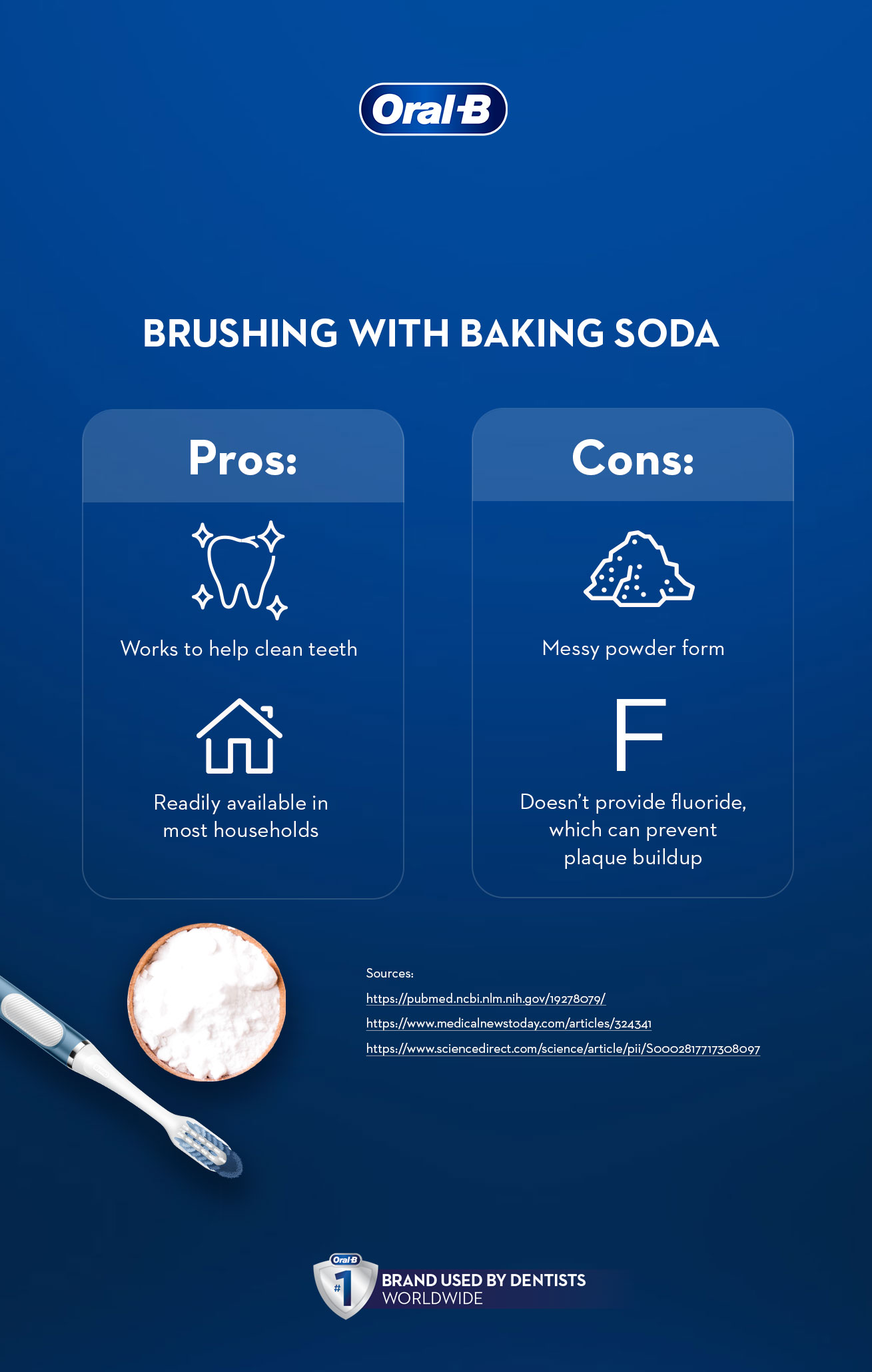
Scientific Evidence
Many studies show that baking soda can help whiten teeth. It has mild abrasive properties that can remove surface stains. Some research indicates that toothpaste with baking soda is more effective than toothpaste without it. The American Dental Association approves baking soda as safe for teeth.
Dentists agree that baking soda is safe if used correctly. They recommend mixing it with water to form a paste. It’s important not to use baking soda every day. Overuse can damage the tooth enamel. Experts suggest using it once or twice a week. Always consult your dentist before starting any new dental routine.
How To Use Baking Soda Safely
Baking soda can help whiten teeth. Mix a teaspoon of baking soda with water. This makes a paste. Use a toothbrush to apply the paste. Brush your teeth for two minutes. Make sure to brush gently. Hard brushing can hurt the enamel. Rinse your mouth well with water.
Use baking soda to whiten teeth once a week. Frequent use can damage tooth enamel. Baking soda is abrasive. It can wear down the enamel if used too often. Always consult a dentist before starting. They can provide the best advice for your teeth.
Alternatives To Baking Soda
Many people use whitening toothpaste. It is easy to find in stores. Whitening strips are also popular. They are simple to use at home. These products can help make teeth whiter. Another option is whitening mouthwash. It can freshen breath and whiten teeth.
Dentists offer professional whitening treatments. These treatments are very effective. They can make teeth many shades whiter. Laser whitening is one option. It works quickly and gives good results. Another choice is custom-fitted whitening trays. Dentists make these trays to fit your teeth. They provide strong whitening solutions for home use.
Personal Experiences
Many people have shared their success stories. They say baking soda helped them get whiter teeth. Some saw a difference in just a week. They feel more confident with their smile now. It is easy to use and cheap. Many prefer it over expensive treatments. They recommend it to friends and family.
Some people had bad experiences. Baking soda caused their gums to bleed. Their teeth became sensitive. It damaged the enamel on their teeth. Dentists warned them to stop. They now use other methods to whiten their teeth. They regret using baking soda. It was not worth the pain and damage.

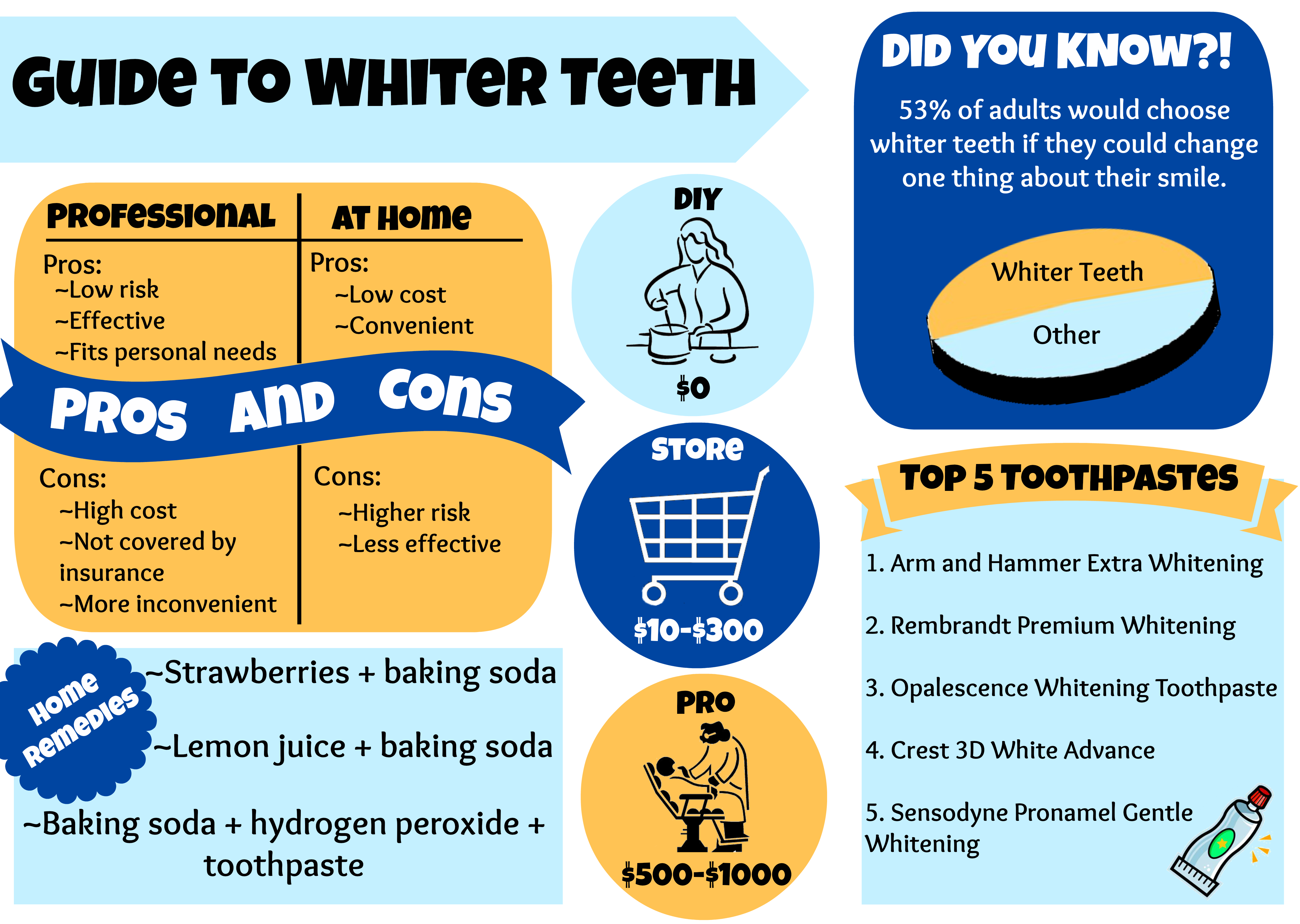
Frequently Asked Questions
Is Baking Soda Safe For Whitening Teeth?
Baking soda is generally safe for teeth whitening if used correctly. Overuse can damage enamel, causing sensitivity. Use it sparingly and consult your dentist.
How Often Should I Use Baking Soda?
It’s best to use baking soda once or twice a week. Frequent use can erode enamel and cause sensitivity. Always consult your dentist for personalized advice.
Can Baking Soda Damage Tooth Enamel?
Yes, overusing baking soda can damage tooth enamel. Abrasive properties can wear down enamel, causing sensitivity. Use it sparingly and under professional guidance.
Does Baking Soda Remove Stains From Teeth?
Baking soda can effectively remove surface stains from teeth. Its mild abrasive nature helps in polishing the teeth. However, it may not be effective for deeper stains.
Conclusion
Baking soda can whiten teeth but has its drawbacks. It’s affordable and effective, yet abrasive. Use it sparingly to avoid enamel damage. Consider professional advice before starting any whitening routine. Balance the pros and cons to make the best choice for your dental health.
